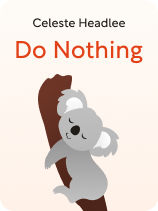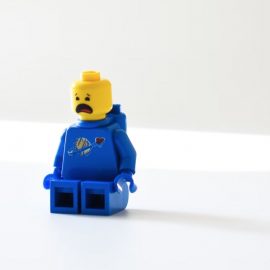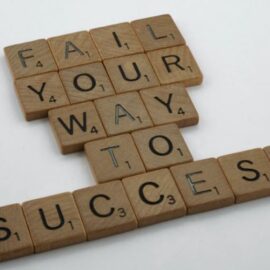

This article is an excerpt from the Shortform book guide to "Do Nothing" by Celeste Headlee. Shortform has the world's best summaries and analyses of books you should be reading.
Like this article? Sign up for a free trial here.
How valuable is your time? Does the “time is money” mentality make you anxious?
In her book Do Nothing, Celeste Headlee writes that, for many people, time feels scarce and too valuable to squander. She argues that the modern pressure to constantly be productive stems, in part, from changing perceptions of how valuable one’s time is.
Keep reading to learn about the fear of wasting time and where it comes from.
Fear of Wasting Time
Headlee says that the cultural obsession with work ethic that started during the Industrial Era persists today, causing many people to choose to overwork themselves. Many people willfully work far more than is necessary to survive.
Although people aren’t working longer hours on average compared to the Industrial Revolution era, they still feel exhausted and overworked. Headlee says this is partly because, as someone’s hourly wage or salary goes up, their time becomes more valuable. And, because time is more valuable, it also feels more scarce. Thus, people have a fear of wasting time—experiencing anxiety when they’re not doing something productive.
| The Psychology of Scarcity Headlee doesn’t quite explain why time feels scarce as its monetary value goes up, but studies demonstrate that the reverse is true: When something is scarce, and therefore more difficult to acquire, people attribute a higher value to it. Therefore, Headlee might be implying that this association works both ways for people psychologically—if something has a high monetary value, people assume it must be because it’s in short supply. Research also supports the idea that regardless of how many hours you’re working, the feeling of time scarcity is enough to derail your mental well-being and schedule. In Scarcity, Sendhil Mullainathan and Eldar Shafir explain that feeling stressed about not having enough time decreases your mental bandwidth which makes you more likely to make bad decisions about time management. For example, you might procrastinate on cleaning your house, even though you know it will take longer if you put it off. This causes a negative spiral as you accumulate more things to do and feel increasingly stressed about the scarcity of time. |
As a result, the urge to be productive spills over into people’s non-professional lives. So, even when people aren’t at work, they feel like they still should be pursuing self-improvement or self-advancement. This means that activities that should be relaxing, like meditating, often become tiresome and stressful because people overanalyze the activity with an app or post it on social media to impress others. In other words, activities turn into work when they’re goal-oriented instead of being done just for the sake of enjoying life in that moment.
(Shortform note: One counterargument to this idea is that being productive can also be a way to cope with negative feelings and stress rather than a cause of them. Psychologists say that because productivity releases endorphins (hormones that make you feel good), it can be a good way to boost your mood and confidence. However, experts also warn that you can stay busy to an unhealthful extent, which will exacerbate the negative feelings you were trying to avoid in the first place. This suggests that it’s important to strike a balance between being productive to cope with stress and giving yourself a break from productivity to process the sources of that stress.)
Exercise: Reflect on Your Relationship With Work and Productivity
Headlee argues that, because modern society overemphasizes work and productivity, it’s important to be intentional and strategic about how you spend your time to avoid the negative effects of overworking. In this exercise, you’ll explore your relationship with productivity and ways you can incorporate more leisure and social connection into your life.
- Reflect on the last week, and list any occasions when you felt like you weren’t being productive enough or like you’d wasted time. What factors do you think caused that feeling? For example, were you experiencing financial stress, comparing yourself to others, or feeling the pressure of cultural norms? If you didn’t experience pressure to be more productive, explain why you think that was the case.
- Write down a few fun or restful activities that you’d like to make time for in your schedule. For example, you might want to take a 30-minute walk as a break from work or take a nap to recharge. For every day of the week, write down a leisure activity that you’ll prioritize.
- Headlee also identifies non-digital social interaction as a key to well-being in a productivity-obsessed culture. Write down a plan to regularly engage in social time that isn’t text-based and involves speaking to people. For example, you might schedule a monthly game night with friends.
- To truly embody Headlee’s advice of embracing leisure, consider spending the next 30 minutes doing fun or restful activities—anything from sitting and staring out the window to listening to music or playing a game with a friend. Write down a few potential activities—make sure they’re activities you enjoy and that don’t have a specific goal attached to them.

———End of Preview———
Like what you just read? Read the rest of the world's best book summary and analysis of Celeste Headlee's "Do Nothing" at Shortform.
Here's what you'll find in our full Do Nothing summary:
- How our fast-paced world is causing us to work less efficiently
- How the culture of overworking has led to social isolation and poor health
- How to embrace true leisure to live a happier and healthier life






